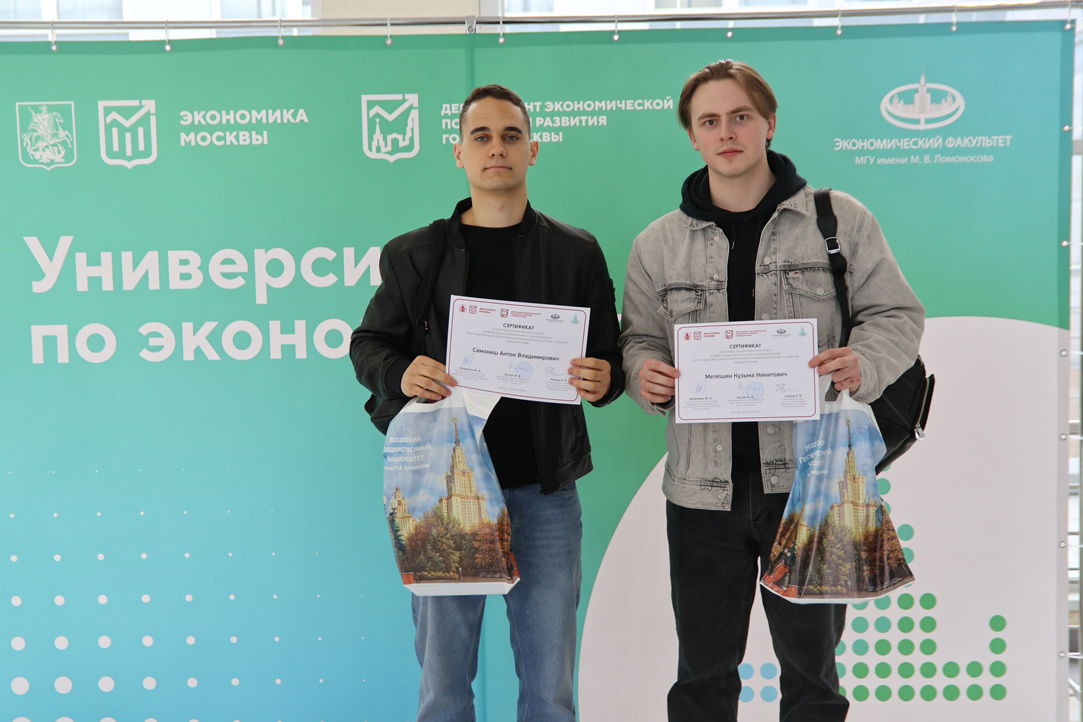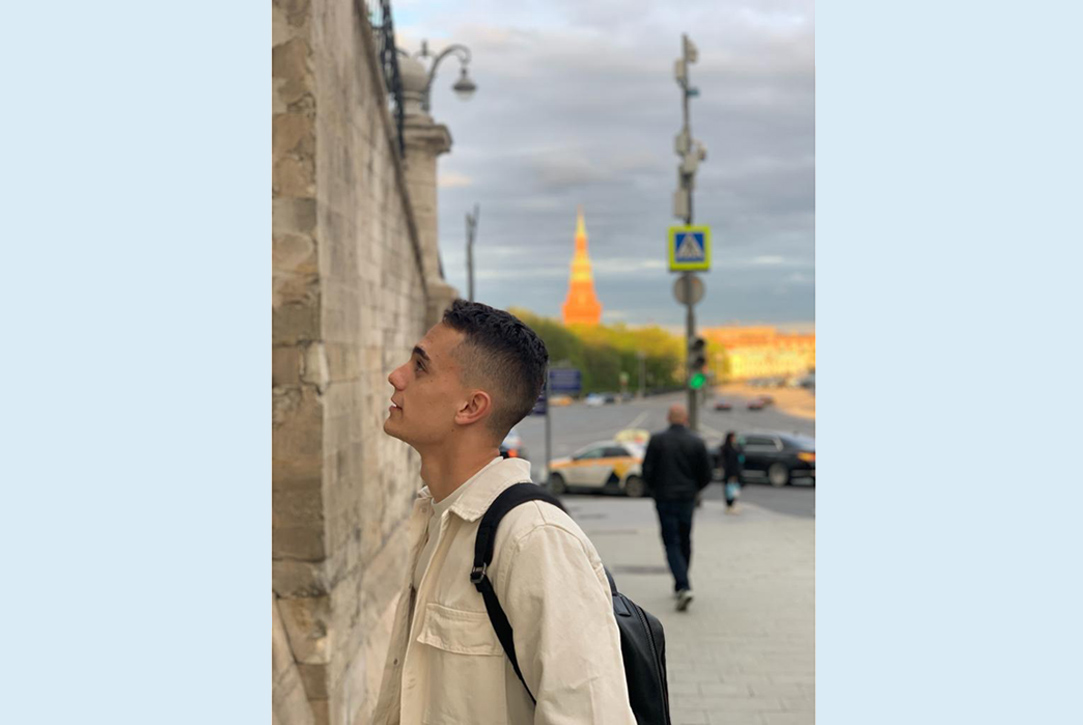“Think Outside the Box and the Win is Yours”

Anton Samokish is in his third year of study at ICEF and was recently announced winner of the International Econometrics Universiade 2024. A contest for undergraduates, specialist degree students and graduates, the event attracts competitors from top universities in Russia and abroad. This year’s Universiade had 21 competitors from ICEF (Y3&Y4), some of whom showed excellent results and made it to the final stage conducted in person.
Here’s the Universiade 2024 winner about studying at ICEF, his preparation for the contest and plans for the future.
- Anton, why did you decide to join the International Econometrics Universiade? Is competition in your genes? It’s a huge responsibility competing on behalf of ICEF and it must have taken a huge effort to prepare, given your busy study schedule.
The Universiade was for me a way to challenge myself and really test my skills and knowledge. It sounded exciting to compete with some of the best-performing students as a representative of ICEF.
- How has your study life prepared you for this challenge?
I was born and raised in the city of Tomsk and went to school with concentration in languages. Mathematics has never been core there, but I’ve always had a passion for it. As a high school student, I firmly decided that I wanted to study Economics and chose ICEF. I knew it as the absolute leader among domestic economic education providers that offered English-taught programmes and the opportunity to earn a second degree from University of London. And now the ICEF students can pursue also a degree from China's SWUFE.
Adjusting to college life wasn’t easy at all. On the one hand, there’s a good degree of flexibility here, allowing you to adjust your study schedule by attending classes of the teachers you like best or following the recorded versions of the classes. But on the other hand, there’s a large amount of study load that requires strong commitment and self-discipline. Getting organized appeared a bit of a problem in my first year. It took some time to figure out how to manage time and what to concentrate on in the first place.
By the end of my first year at ICEF I realized it’s all about being a good multitasker, avoiding study backlogs, and starting to prepare for exams well in advance. This strategy has proven highly effective for me as courses get more intensive each year.
But even though I know how to be a good student here, things aren’t getting easier as I approach my final year. ICEF is a place with high academic standards, it requires diligence, perfect attendance, strong commitment and resource management skills. There is no perfect formula for success. It’s up to everyone to figure out their own best strategy.
Everything you do at ICEF academically unfolds in an environment that gets you ready for any kind of intellectual contest.

- Who is your academic role model, if you have one, and why do you look up to them?
The person I look up to and trust for strength and encouragement is my granddad. He’s a renowned scientist in the field of chemical bond theory. His research on the frontlines of fundamentally advanced physics earned him an unpreceded place in his domain, but he’s always looking to explore more and has recently turned to economics. His high level of energy and passion for science are what keeps me going forward.
- Which courses do you enjoy the most?
The courses in the domain of statistics and data science, and finance. I would like to work at the intersection of these two fields in the future.
- And which helped most while preparing for the Universiade?
Mathematical Statistics and Econometrics. And also Data Science, it teaches exactly the matrix operations the problem set of this year's Universiade involved.
- Is there a secret to successful preparation for the Universiade? I imagine its tasks defy standard approach and need to be dealt creatively.
I had to study extra to prepare for the Universiade. I also used the problem lists from previous years, but this year’s contest was again, as always, unique.
As many as two problems in this year’s set involved matrix operations, much to our surprise. There’s rarely an algorithm or pattern to rely on in this kind of competition. It expects you to think outside the box rather than use template solutions.
- How did the Universiade go for you? What kind of problems did it offer and were they difficult ones?
It didn’t give me any serious stress solving those problems. They were four. I felt excited to be solving something really complex. I coped with the last one just ten munities before the end time and that last problem was the one I scored top mark in.
- The Universiade attracts the best-performing students from the country’s top universities. Who were your competitors this year?
The Moscow State University students. They traditionally score high at the Universiade and that’s I think because there is more theory in their Econometrics course, they have more experience with deriving formulas and theorems, whereas ICEF’s course in econometrics is more practice-oriented. We at ICEF focus more on using theory to interpret software obtained outcomes.
- How did you feel when they announced you winner?
I felt thrilled and proud when I saw my name on the winners list. Winning a competition as serious as this means I did a great job. I’m on the right track.
- What are the benefits of winning the Universiade?
The Universiade grants its winners places in top master’s programmes in the country. Winning it is an accomplishment that raises your academic standing, as well as chances of getting a desired job as a candidate who stands above the competition on the labor market.
My immediate plan is to do a master’s in data analysis in finance. As for my career plans, I would like to try my hand at investing and get a job that would involve research and tasks that pose some challenge.
You recently sat the University of London examination in Econometrics. What are your impressions and what result do you anticipate?
This year’s University of London examination had some serious tasks. In addition to model validation, they required us to do time series analysis. This examination, too, can be described as kind of competition among students from around the world who are pursuing the UoL International Programmes. Knowing that ICEF students continue to be top scorers in this contest, showing the best results in the world almost every year, I think me and my classmates can expect very good results.
